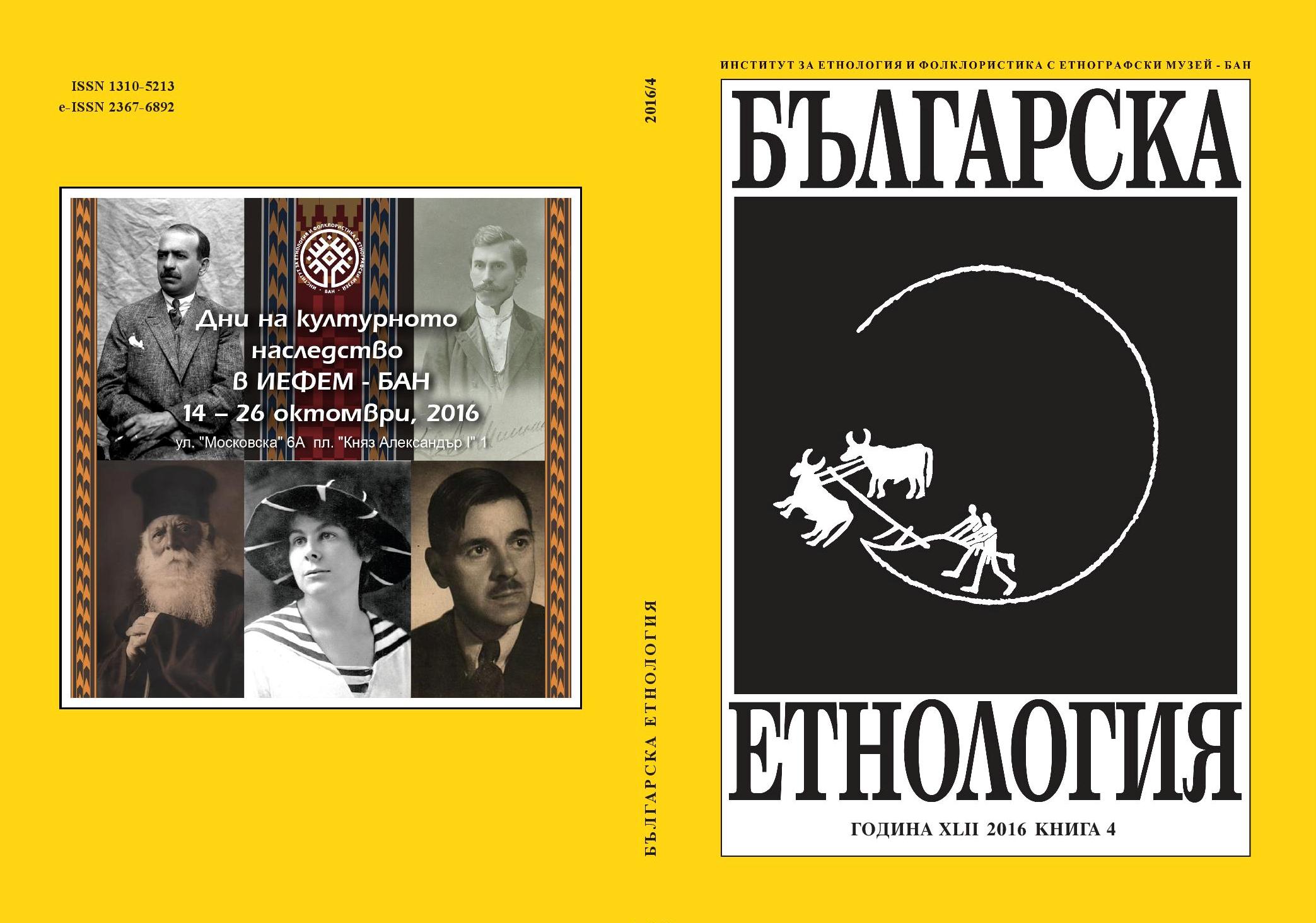Семейството в житейските разкази на бесарабските българи
The Family in the Life Stories of the Bessarabian Bulgarians
Author(s): Zhenja PimpirevaSubject(s): Politics, Anthropology, Cultural history, Customs / Folklore, National Economy, Agriculture, Civil Society, Governance, Ethnohistory, Local History / Microhistory, Social history, Gender history, Recent History (1900 till today), Cultural Anthropology / Ethnology, Culture and social structure , Evaluation research, Social development, Social differentiation, Family and social welfare, Nationalism Studies, Rural and urban sociology, Sociology of Culture, Welfare services, Economic development, Pre-WW I & WW I (1900 -1919), Interwar Period (1920 - 1939), Post-War period (1950 - 1989), Transformation Period (1990 - 2010), Present Times (2010 - today), Period(s) of Nation Building, History of Communism, Between Berlin Congress and WW I, Fascism, Nazism and WW II, Cold-War History, Post-Communist Transformation, Migration Studies, Ethnic Minorities Studies, Sociology of Politics, Globalization, Socio-Economic Research, Identity of Collectives
Published by: Институт за етнология и фолклористика с Етнографски музей при БАН
Keywords: life stories;family;Bulgarians in diaspora;ethnicity;Bessarabia;Moldova;Ukraine;identification;migration
Summary/Abstract: The article is devoted to the role of life stories in the study of the family of theBessarabian Bulgarians. The eyewitnesses’ stories (or the stories of their loved ones)contain various appreciations, experiences, feelings, values, and meanings whichallow the reconstruction of their world. The study is based on the life stories collectedduring field ethnographic expeditions conducted in 2009-2010 in villages witha predominant or significant Bulgarian population in the Republic of Moldova andUkraine.The life stories are an invaluable source for the study of the Bessarabian familyin traditional and contemporary perspective. Sharing them requires a climate of trustbetween the respondents and the researcher. The life stories represent a collection ofselected facts and episodes, in which many hidden, suppressed and forgotten thingsremain beyond the narrative. Because of their subjective character, the family is representedin an estimative and emotional way enabling the identification of the trendsin its development and the judgement of its values and morals.
Journal: Българска етнология
- Issue Year: 2016
- Issue No: 4
- Page Range: 538-557
- Page Count: 20
- Language: Bulgarian

